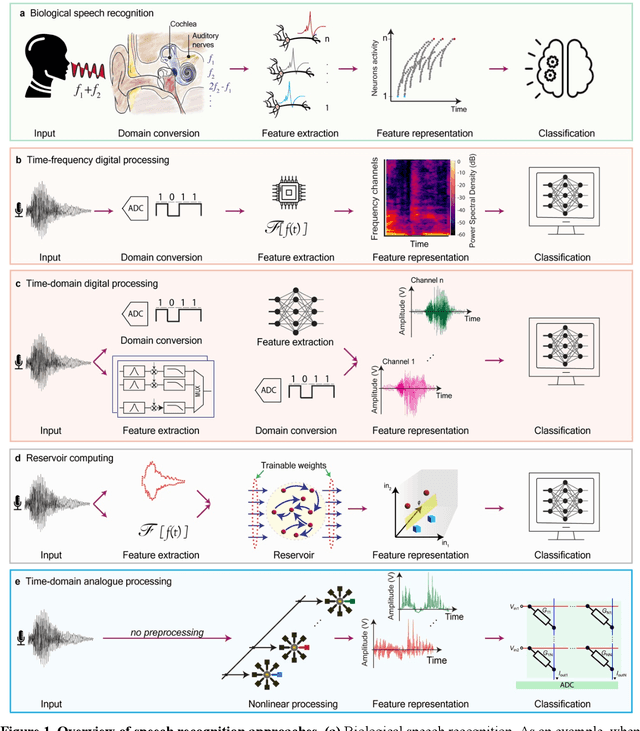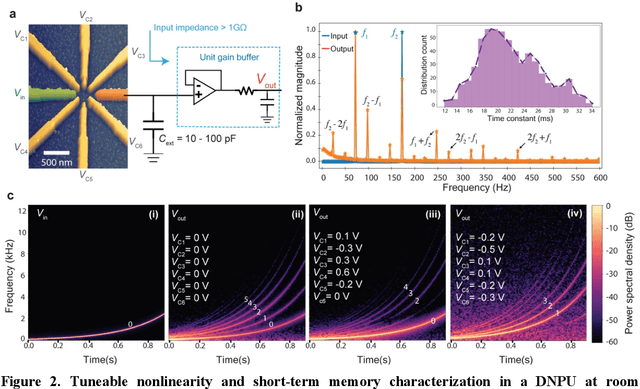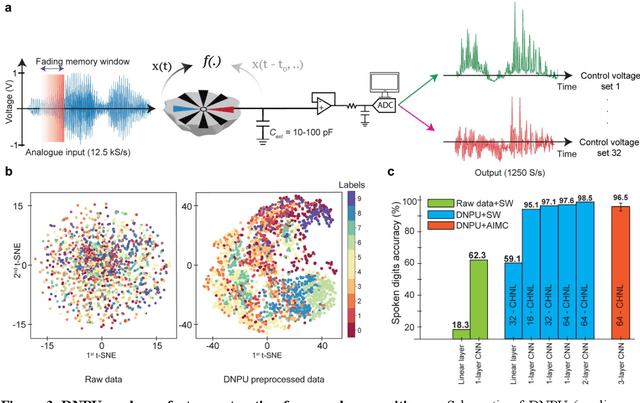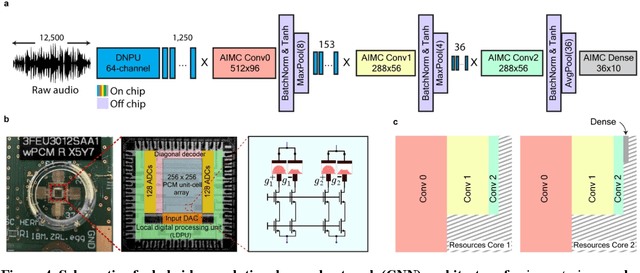Mohamadreza Zolfagharinejad
In-Materia Speech Recognition
Oct 14, 2024



Abstract:With the rise of decentralized computing, as in the Internet of Things, autonomous driving, and personalized healthcare, it is increasingly important to process time-dependent signals at the edge efficiently: right at the place where the temporal data are collected, avoiding time-consuming, insecure, and costly communication with a centralized computing facility (or cloud). However, modern-day processors often cannot meet the restrained power and time budgets of edge systems because of intrinsic limitations imposed by their architecture (von Neumann bottleneck) or domain conversions (analogue-to-digital and time-to-frequency). Here, we propose an edge temporal-signal processor based on two in-materia computing systems for both feature extraction and classification, reaching a software-level accuracy of 96.2% for the TI-46-Word speech-recognition task. First, a nonlinear, room-temperature dopant-network-processing-unit (DNPU) layer realizes analogue, time-domain feature extraction from the raw audio signals, similar to the human cochlea. Second, an analogue in-memory computing (AIMC) chip, consisting of memristive crossbar arrays, implements a compact neural network trained on the extracted features for classification. With the DNPU feature extraction consuming 100s nW and AIMC-based classification having the potential for less than 10 fJ per multiply-accumulate operation, our findings offer a promising avenue for advancing the compactness, efficiency, and performance of heterogeneous smart edge processors through in-materia computing hardware.
 Add to Chrome
Add to Chrome Add to Firefox
Add to Firefox Add to Edge
Add to Edge